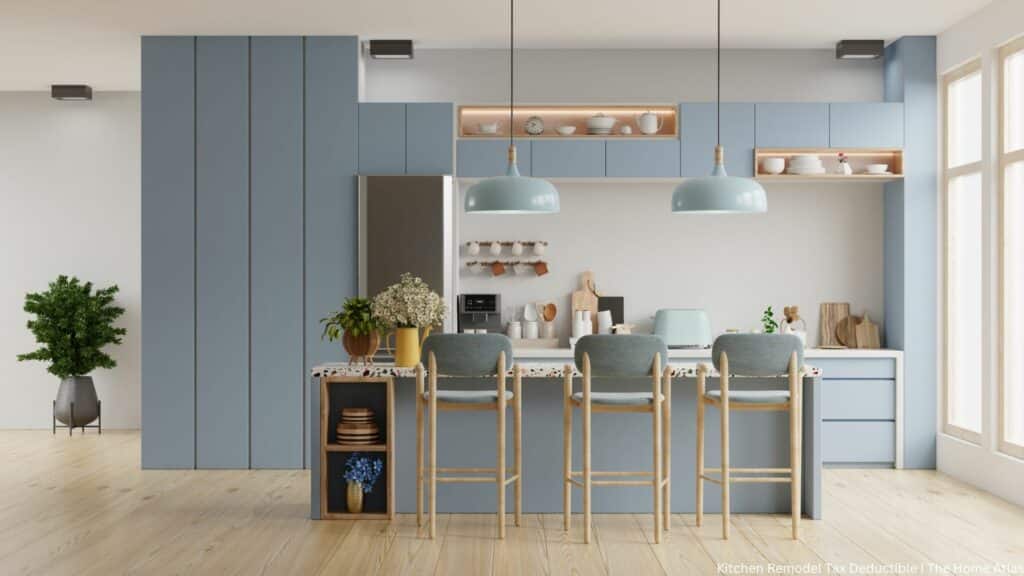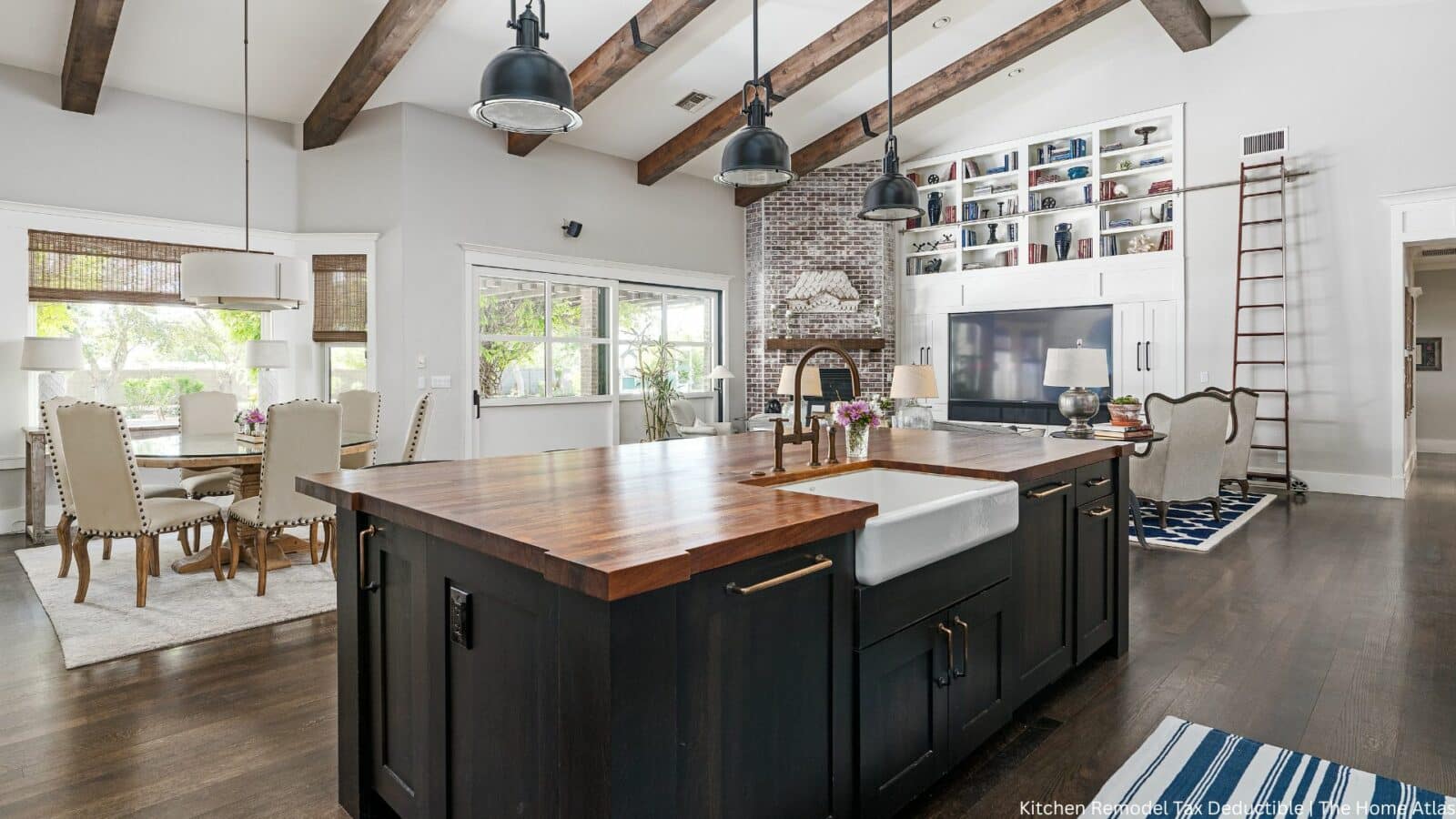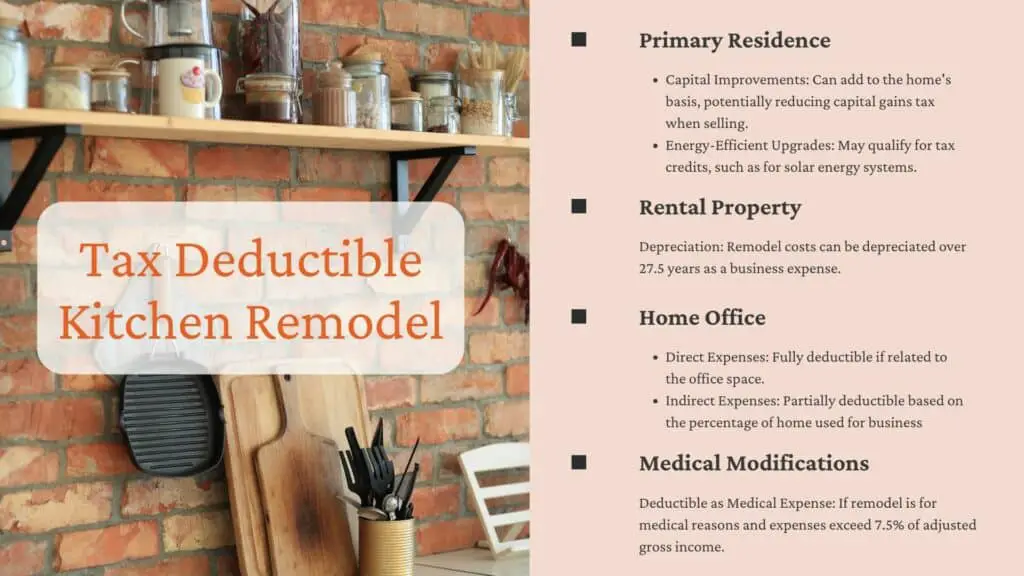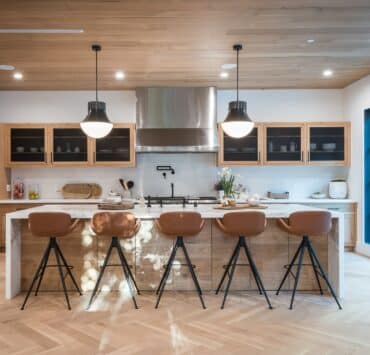Is your kitchen remodel tax deductible? Here are the requirements:
- Installing energy-efficient equipment
- Kitchen remodeling for medical purposes
- Remodeling for home resale
- Kitchen remodeling for rental purposes, and lastly,
- Kitchen remodeling if it’s part of a home office improvement
Now, let’s dive in deeper.

Is Your Kitchen Remodel Tax Deductible?
The question of whether a kitchen remodel is tax deductible is nuanced. Home improvements, such as a kitchen remodel, can add to the value of your home, making part of the costs potentially deductible under specific circumstances.
What Does Not Count to Avail Tax Benefits? Kitchen Remodel VS Kitchen Repair
Many homeowners often confuse repair with remodeling.
Remodeling is when you make changes to improve your property’s value. For example, installing advanced stainless steel appliances for improved hygiene and a sleek appearance can make your kitchen remodel tax deductible if it increases your home’s resale value.
On the flip side, if your sink or faucet is leaking and you call a plumber to fix it, that’s a repair. Repairs ensure that your home remains in good condition but do not enhance its value. Thus, expenses made for repairs or maintenance cannot be claimed for tax deductions.

How Does Tax Deduction for Home Improvements Work?
Taxation rules allow homeowners to add capital improvement expenses to the base cost of their home. This adjustment is crucial because a higher cost basis can reduce the total profit or capital gain when selling the property. This principle makes a kitchen remodel tax deductible under certain conditions, particularly when it increases the home’s resale value.
However, not everyone can avail of these tax benefits. Thanks to the exemption on the first $250,000 of profit for single filers and $500,000 for joint filers, many homeowners won’t need to pay taxes on the profit from selling their home.
Conditions that Allow Tax Deduction
Here are specific scenarios where your kitchen remodel could be tax deductible:
Primary Residence
For those remodeling a kitchen in their primary residence, the expenses are generally not tax deductible in the year incurred. However, the remodel can affect taxes in two significant ways:
- Capital Improvements: If the kitchen remodel qualifies as a capital improvement rather than a simple repair, it can add to the basis of your home. This means when you sell the property, the remodel can reduce the amount of capital gains tax you might owe. Capital improvements must add value to your home, prolong its useful life, or adapt it to new uses.
- Energy-Efficient Upgrades: Specific energy-efficient improvements may qualify for tax credits. For example, the Residential Energy Efficient Property Credit, which has been extended and modified over the years, allows for a tax credit for solar energy systems, among others. The specifics of this credit can change, so it’s important to consult current IRS guidelines or a tax professional.
Rental Property
If the kitchen remodel is done on a property you rent out, the entire cost is usually deductible over time through depreciation. The IRS considers this a business expense. To be deductible, the remodel must be a “reasonable and necessary” expense related to the rental activity.
- Depreciation: For rental properties, you can deduct the cost of the kitchen remodel over a 27.5-year period (the IRS-designated lifespan of residential rental property), starting with the month the remodel is placed in service.
Home Office Deduction
If part of your home is used regularly and exclusively as a home office, and you’ve remodeled the kitchen as part of this space or in support of the business use of your home, you may be able to deduct a portion of the remodel.
- Direct Expenses: Costs directly related to the office space are fully deductible.
- Indirect Expenses: Costs for improvements to the whole house (like a kitchen remodel) can be partially deductible based on the percentage of the home used for business.
Medical Modifications
If the remodel is necessary for medical reasons, such as lowering cabinets for wheelchair accessibility, the costs can be deductible as a medical expense. To qualify, the expenses must exceed 7.5% of your adjusted gross income, and only the amount above this threshold is deductible.

Amount Deductible
The actual amount deductible will vary widely depending on the type of tax benefit being utilized:
- Capital Improvements: This doesn’t provide an immediate deduction but increases your home’s cost basis.
- Energy Credits: Can cover a portion of the cost, depending on the specific improvements and current tax laws.
- Rental Property Depreciation: Deducted over 27.5 years, starting with the month of completion.
- Home Office: Depends on the percentage of your home used for business.
- Medical Modifications: Deductible to the extent they exceed 7.5% of your AGI and are not reimbursed.

While it is possible to make a kitchen remodel tax deductible, consulting with a tax professional is advisable to understand how these rules apply to your specific situation. This article aims to guide homeowners on how to navigate the complexities of tax deductions for home improvements.
Related posts:
 Your Guide to the Best DIY Budget Kitchen Remodel Ideas
Your Guide to the Best DIY Budget Kitchen Remodel Ideas
 Outdated Kitchen Trends that You Must Stay Away From in 2022
Outdated Kitchen Trends that You Must Stay Away From in 2022
 Clever Storage Solutions: Small Kitchen Cabinets and the Best Ideas
Clever Storage Solutions: Small Kitchen Cabinets and the Best Ideas
 Unlock the Potential of Your Small L-Shaped Kitchen with Island
Unlock the Potential of Your Small L-Shaped Kitchen with Island
 10×10 Kitchen Layout: Smart Design Ideas and Expert Tips for Modern Homes
10×10 Kitchen Layout: Smart Design Ideas and Expert Tips for Modern Homes




